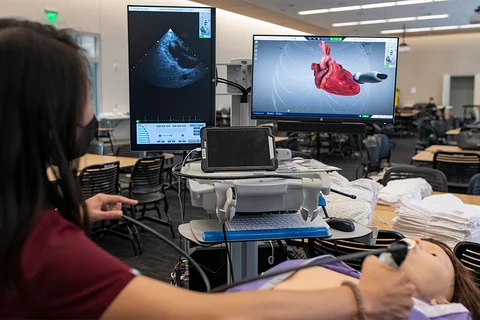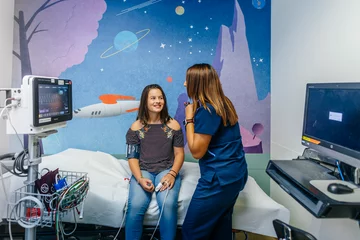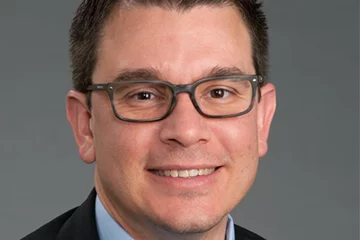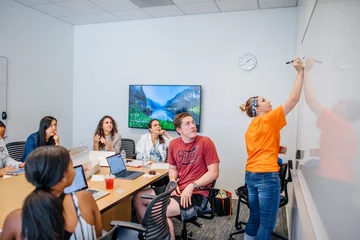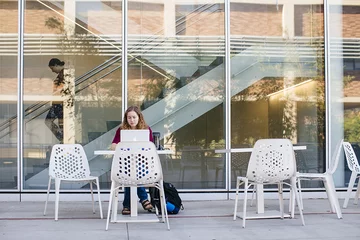Meet Dr. David Richards, a Pediatric Resident at UCLA
After medical school, most students complete a year as a resident during the first stage of their medical residency. Depending on the student's location and specialty, however, most residents agree it's a year filled with surprising challenges, engaging new experiences and, of course, plenty of work hours.
Dr. David Richards, a pediatric resident at UCLA who began his residency year this June, shared his first few months with a snapshot into the life of a medical resident.
A 'Typical' Day
According to Dr. Richards, no day is typical in the life of a medical resident. "Depending on the rotation," he says, "you work anywhere from 60-to-80 hours a week. While on the PICU (pediatric intensive care unit), I was showing up at 5:30 every morning and working 13-to-14 hours a day. On outpatient-clinic rotations, I often show up at 8 am. Sometimes you work nights." Nevertheless, these long hours and varieties in schedules are not without purpose. "It is nice to have the variety of locations and hourly schedules, and at least during resident year, every rotation is something new to learn a lot from," he reflects.
Curing Impostor Syndrome
Aside from an extensive day-to-day experience, residents take up several other challenges as well. For Dr. Richards, feeling a strong sense of impostor syndrome was one of them.
"You don't feel any smarter than when you were in med school, but somehow, now that you have the letters MD after your name, you are making so many decisions, putting in all the orders and transferring patients. I'd say all my friends had these same feelings at the beginning of residency," he admits, "But they start to pass once you've done things a few times. And, of course, the senior residents and attendings are there to help; they remember what it was like to just start off."
Growing With Your Patients
Fortunately, Dr. Richards has had incredibly rewarding experiences during this first year following medical school. Instead of just establishing connections with new patients each rotation, pediatric residents get the exciting opportunity to see families come back to them during their clinical career. Dr. Richards's partnerships with the other pediatricians have also been particularly encouraging.
"I was pleasantly surprised at how close you quickly become with your co-residents and how often you end up helping each other to get a task done," he says. "There really is an excellent sense of camaraderie that is focused not only on excellent patient care but also on nurturing each other."
For medical students who are entering their fourth year, Dr. Richards suggests pursuing rotations they won't get the chance to complete again, traveling independently, conducting research abroad or a similar project that affords them the best opportunity to enjoy their last year of medical school. This was advice that Dr. Richards was given by his own mentor, and he's glad he took it. "It really did help me recharge mentally before resident year," he says.
